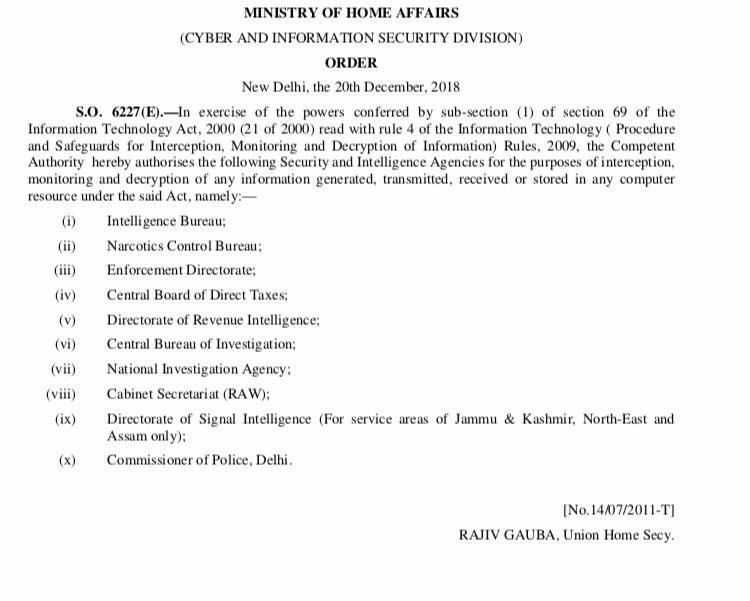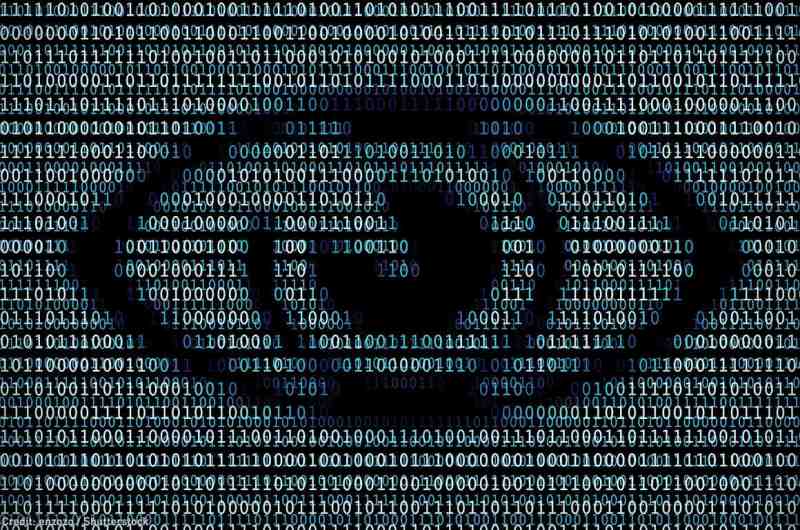Bhubaneswar: Ministry of Home Affairs released a statement on Friday authorizing ten Government agencies to “intercept, monitor and decrypt” all information on any computer resources in the country.
The said 10 Government agencies are:
- Intelligence Bureau
- Narcotics Control Bureau
- Enforcement Directorate
- Central Board of Direct Taxes
- Directorate of Revenue Intelligence
- Central Bureau of Investigation (CBI)
- National Investigation Agency (NIA)
- Cabinet Secretariat (R&AW)
- Directorate of Signal Intelligence (For service areas of Jammu & Kashmir, North-East and Assam only)
- Commissioner of Police, Delhi
The social media is abuzz with how no Indian will have any privacy now. This is a common misconception. It’s not that the MHA order is not alarming. It sure seems overly broad, and it may lead to abuse of power by the government bodies. But it doesn’t turn India into a surveillance state.
First, the details of the MHA order. The order signed by Rajiv Gauba, Union Home Secretary, notes that: “In exercise of the powers conferred by sub-section (1) of section 69 of the Information Technology Act, 2000 (21 of 2000) read with rule 4 of the Information Technology (Procedure and Safeguards for Interception, Monitoring and Decryption of Information) Rules, 2009, the Competent Authority hereby authorises the following Security and Intelligence Agencies for the purposes of interception, monitoring and decryption of any information generated, transmitted, received or stored in any computer resource under the said Act”.

There are several problems with the order and it is appropriate to raise concerns about it. But these rules don’t make India a surveillance country. In fact, on the ground they change little, and they neither seem arbitrary — the impression that commoners seem to give to give out.
The IT Act 2000, provisions of which have been used by the government to come up with the new MHA rules, already allows the government to monitor, seize, look into data of computers in India. And not just the IT Act, but there are many provisions that the government agencies have at their disposal that they can use to carry out their work (dirty or clean). Whether those provisions are constitutional or not, particularly in light of the landmark Supreme Court order on recognising privacy as a Fundamental Right, is another matter.
Why we don’t need to worry about the MHA order
Coming back to the MHA order, there is no mention of any real-time surveillance. Yet, there is a common misconception that this is going to be a reality soon. Also people believe that the Government will soon know all the details stored in our computer or phone. Again this is false. There is no provision to put an entire class of people, town, cities or parts of country under surveillance. They will only help the government do targeted investigations and surveillance.
It is accurate that when too many government bodies get power to do targeted surveillance under too broad circumstances, it could be a problem. But targeted surveillance or investigation is also needed. Otherwise, now in 2018, it is almost impossible to investigate a crime or keep a tab on criminals.
This MHA order will especially be helpful in tense riot like situations when all public activities are suspended. Also terrorist or Maoist activities could be kept a tab on.
As common people, we really don’t need to be worried about this MHA order. We all have been employing various methods to protect our privacy. In all manners, we should continue doing so.
Also Read: Govt Authorizes 10 Security Agencies To Snoop On Any Computers




 Ms Kalinga
Ms Kalinga